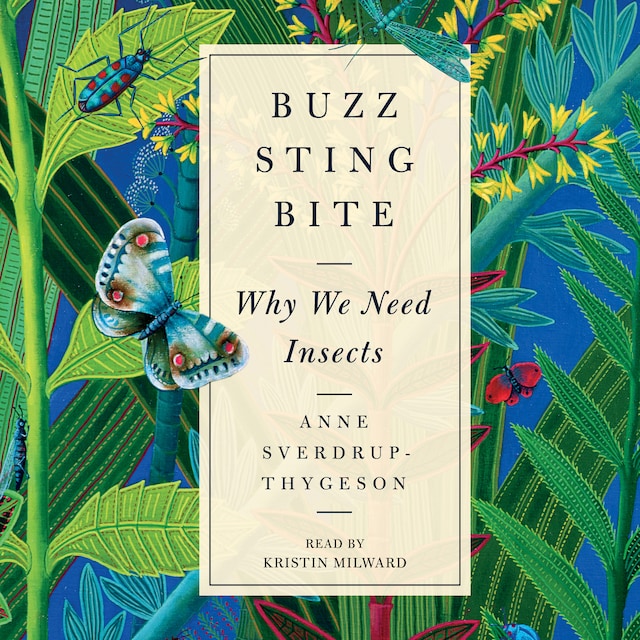
Buzz, Sting, Bite
Why We Need Insects
Tietoa kirjasta
This enthusiastic, witty, and informative introduction to the world of insects and why we could not survive without them is “a joy” (The Times, London) and “charming...Highlighting them in all their buzzing, stinging, biting glory” (The New York Times Book Review).
Insects comprise roughly half of the animal kingdom. They live everywhere—deep inside caves, 18,000 feet high in the Himalayas, inside computers, in Yellowstone’s hot springs, and in the ears and nostrils of much larger creatures. There are insects that have ears on their knees, eyes on their penises, and tongues under their feet. Most of us think life would be better without bugs. In fact, life would be impossible without them.
Most of us know that we would not have honey without honeybees, but without the pinhead-sized chocolate midge, cocoa flowers would not pollinate. No cocoa, no chocolate. The ink that was used to write the Declaration of Independence was derived from galls on oak trees, which are induced by a small wasp. The fruit fly was essential to medical and biological research experiments that resulted in six Nobel prizes. Blowfly larva can clean difficult wounds; flour beetle larva can digest plastic; several species of insects have been essential to the development of antibiotics. Insects turn dead plants and animals into soil. They pollinate flowers, including crops that we depend on. They provide food for other animals, such as birds and bats. They control organisms that are harmful to humans. Life as we know it depends on these small creatures.
“Delivering a hail of facts with brio and precision” (Nature) Anne Sverdrup-Thygeson shows us that there is more variety among insects than we thought possible and the more you learn about insects, the more fascinating they become. Buzz, Sting, Bite is “a very enthusiastic look at the flying, crawling, stinging bug universe world, and why we should cherish it” (The Philadelphia Inquirer).


